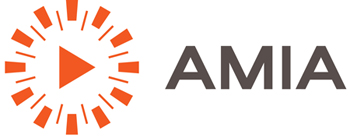Meet the Navigators!
Conferences can be an intimidating place, whether you’re planning on attending your first or your 25th conference. If you’re new, there’s probably a lot going on that may not be clear or may be unfamiliar. We want the conference to be more welcoming to everyone, and particularly to those who may be attending or presenting for the first time. With that in mind, we want to offer you a Conference 101 guide, a Newcomer’s Orientation on Wednesday, and a team of Conference Navigators.
The Navigators are all long-time conference attendees and active participants in AMIA. They are not only the official conference welcomers, but will be available all week to answer questions or lend a helping hand to anyone who might need a little help in navigating the conference. They’ll all be easily identifiable – and we’ve included their pictures here so you can get to know them. Please say hello, ask questions about the conference, about AMIA, or what they do when they aren’t Navigating!
__________________________________________________
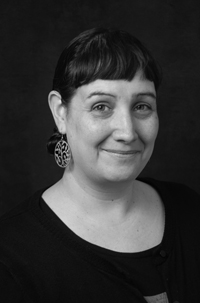
Rachel E. Beattie
Rachel E. Beattie is an assistant media archivist at the Media Commons Media Archive at the University of Toronto. She is also a longtime volunteer at The ArQuives: Canada’s LGBTQ2+ Archives. She is one of the co-chairs of AMIA’s LGBT Committee, the Advocacy Committee of the Board, and a member of the Community Archives Workshop committee. She is equally passionate about archives, social justice, preserving LGBTQ+ history, and sharing adorable pictures of opossums on social media.
__________________________________________________
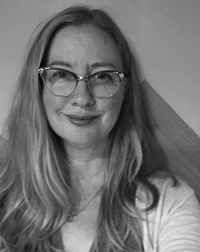 Snowden Becker
Snowden Becker
Snowden Becker holds a BFA in Printmaking from the Maryland Institute, College of Art in Baltimore, an MLIS from UCLA, and most (but not all) of a PhD from UT Austin. She has been attending AMIA since 2001, and has been involved with many committees, interest groups, and the Board over the years.
ASK HER ABOUT: Home movies and amateur film * Police bodycams and evidence management * Core competencies for archivists and recordkeepers * Graduate studies in LIS and media preservation * Questions you’re embarrassed to ask because it seems like everyone else already knows all about this stuff * Knitting and other needlecrafts
__________________________________________________
 Rachel Del Gaudio
Rachel Del Gaudio
While attending Chapman University for a degree in Film Studies, Rachel spent summers interning at film archives. Those lost summers paid off when she was offered a position at the Academy Film Archive in 2007 to work with their nitrate film collection, and then subsequently landed a job at the Library of Congress in their Motion Picture division in 2009. During her time at the Library, she has worked in the vaults, processed collections, inspected prints for film loans and has worked to barcode the vast collection. The most rewarding project has been co-creating and orchestrating “Mostly Lost,” the annual workshop that is dedicated to identifying unknown films from around the world. The workshop is an organic extension of the Flickr page that she created in 2008 as chair of the Nitrate Committee that serves the same purpose.
__________________________________________________
 Siobhan Hagan
Siobhan Hagan
Siobhan was born and raised in Maryland and holds her M.A. in Moving Image Archiving and Preservation (MIAP) from NYU’s Tisch School of the Arts. She has worked in a variety of collecting organizations throughout her career, including the UCLA Library, the National Aquarium, and the Smithsonian Institute. She is currently the Project Manager of the Memory Lab Network at the DC Public Library. In addition to this, Siobhan is the founder, CEO, and President of MARMIA (the Mid-Atlantic Regional Moving Image Archive). She has been active as a member of the Association of Moving Image Archivists (AMIA): she is currently co-chair of the Local TV Task Force, was a chair of the Regional Audio-Visual Archives Committee from 2013-2018, and was an AMIA Director of the Board from 2015-2017.
__________________________________________________
 Pat Kenny
Pat Kenny
Pat Kenny is the Strategic Account Director for Iron Mountain Entertainment Services and has been actively involved in the archive community for almost 20 years, in different committees within AMIA. By being part of AMIA we are helping to develop a larger network of resources for the organization to use and this assets in our ability to initiate new projects, so we can continue our work towards diversity and inclusion, to support outreach, as we provide more educational opportunities. My clients passion about the archives and preserving the past and the present is truly inspiring and we at IMES feel privileged to be part of the solution through our partnerships. Welcome to the new AMIA members first conference enjoy, be open and be engaged for memories that will leave a lasting mark.
__________________________________________________
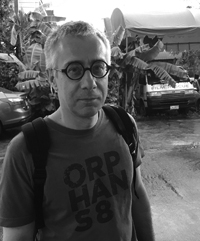 Reto Kromer
Reto Kromer
Having graduated in mathematics and computer science, Reto Kromer became involved in audio-visual conservation and restoration 33 years ago. He runs his own preservation company, AV Preservation by reto.ch, and lectures at the Bern University of Applied Sciences, the Academy of Fine Arts Vienna and the Elías Querejeta Zine Eskola in Donostia (San Sebastián). His current research includes colour spaces, look-up tables, and codec programming and emulation. Previously he was head of preservation at the Cinémathèque suisse (the Swiss National Film Archive) and lecturer at the University of Lausanne. Reto served as AMIA board member during two terms.
__________________________________________________
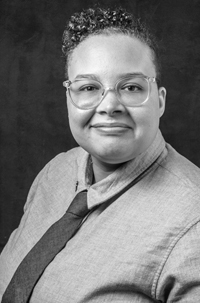 Candace Ming
Candace Ming
Candace Ming is the Media Conservation and Digitization Specialist at the National Museum of African-American History & Culture in Washington, DC. Previously she was the Project Manager and Archivist for the South Side Home Movie Project at the University of Chicago. Her work specializes in African-American home movies and she is a graduate of the Moving Image Archiving and Preservation Program at NYU.
__________________________________________________
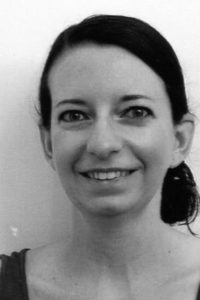 Jen O’Leary
Jen O’Leary
Jen O’Leary is a Co-Chair of the Education Committee and a member of the Advocacy Committee of the Board. Prior to her role as Co-Chair, she was the Student Liaison for the Education Committee. She graduated from the UCLA MIAS program in 2016 where she was the President of the UCLA AMIA Student Chapter and the 2015 recipient of the AMIA Image Permanence Institute Internship. Jen has been a member of AMIA since 2014, and this year will mark her 6th AMIA Conference. Jen’s work experience has centered around archive management at studios.
__________________________________________________
 Chase Schulte
Chase Schulte
Chase Schulte entered the realm of the moving image archivist almost 20 years ago after many years inside the Post Production and International Distribution world of the Studios. “Finding the AMIA community when I did was a real eye opener for me. It was right at the time that many archives were moving from a very isolated place to be to suddenly being the prime focus of almost every department of a Studio. My AMIA membership opened a door and the conferences have opened that door to the world.” The recurring theme is each of his projects remains high profile and high volume inventory acquisitions and migrations as well as full collection inspections. In his current role as Studio Archivist at NBCUniversal, Chase continues the work of shepherding the DreamWorks Animation family of assets into the NBCU library collection.
__________________________________________________
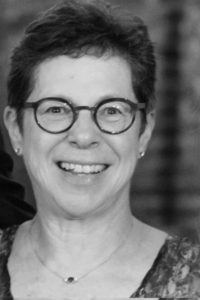
Wendy Shay
Wendy Shay, one of AMIA’s founders, spent 35 years as an audiovisual archivist at the Smithsonian Institution’s Human Studies Film Archives and the National Museum of American History Archives Center. She retired in 2017, but continues to be active in the field as an independent researcher, a member of the AMIA election’s committee, and a volunteer at the Human Studies Film Archives and the National Archives’ Film Lab. Wendy is a former president and ardent supporter of AMIA.
__________________________________________________
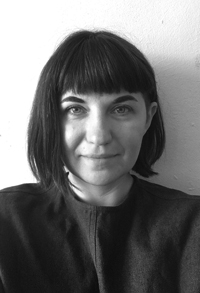 Brianna Toth
Brianna Toth
I work as a Preservation Archivist at the Academy of Motion Picture Arts & Sciences Film Archive on the Blackhawk Films Collection, and as the Assistant Archivist at the Bob Baker Marionette Theater. I have previously worked for the Conner Family Trust, Estate of George and Mike Kuchar, and digitally preserved the Sequoia Kings Canyon National Park’s videotape collection. Much of my professional work has focused on the restoration and stewardship of moving image artist collections. This dedication to artists and filmmakers extends to exhibition standards and the acquisition of artworks within a fine art context.
My current research is concerned with the obsolescence of technical expertise within the field of moving image archiving and preservation. I argue that without a platform for the exchange of cross-generational knowledge between AV archivists and technicians, these skills are an important part of our cultural heritage at risk of being lost. I have a Masters in Library Information Science with a focus on Media Archival Studies (MLIS MAS) from UCLA and hold a B.A. in Art History from the University of the Pacific. As an undergraduate, I also studied at Goldsmiths College in London in their Visual Cultures Department.
__________________________________________________
 Greg Wilsbacher
Greg Wilsbacher
Greg Wilsbacher is a faculty librarian at the University of South Carolina where he curates the Fox Movietone News Collection and the United States Marine Corps Film Repository. He writes and lectures on newsreel history, digital preservation theory, optical sound technologies and military cinematography and serves as a Board member of the non-profit, Envisioning History. Since 2011, he has led an interdisciplinary team as part of the AEO-light Project (https://usc-imi.github.io/aeo-light/), which has developed an open-source software solution for preserving optical film sound. He recently began a collaboration with the university’s Computer Vision Lab to develop machine learning and artificial intelligence models that will expand searchability and access to the Marine Corps films.
